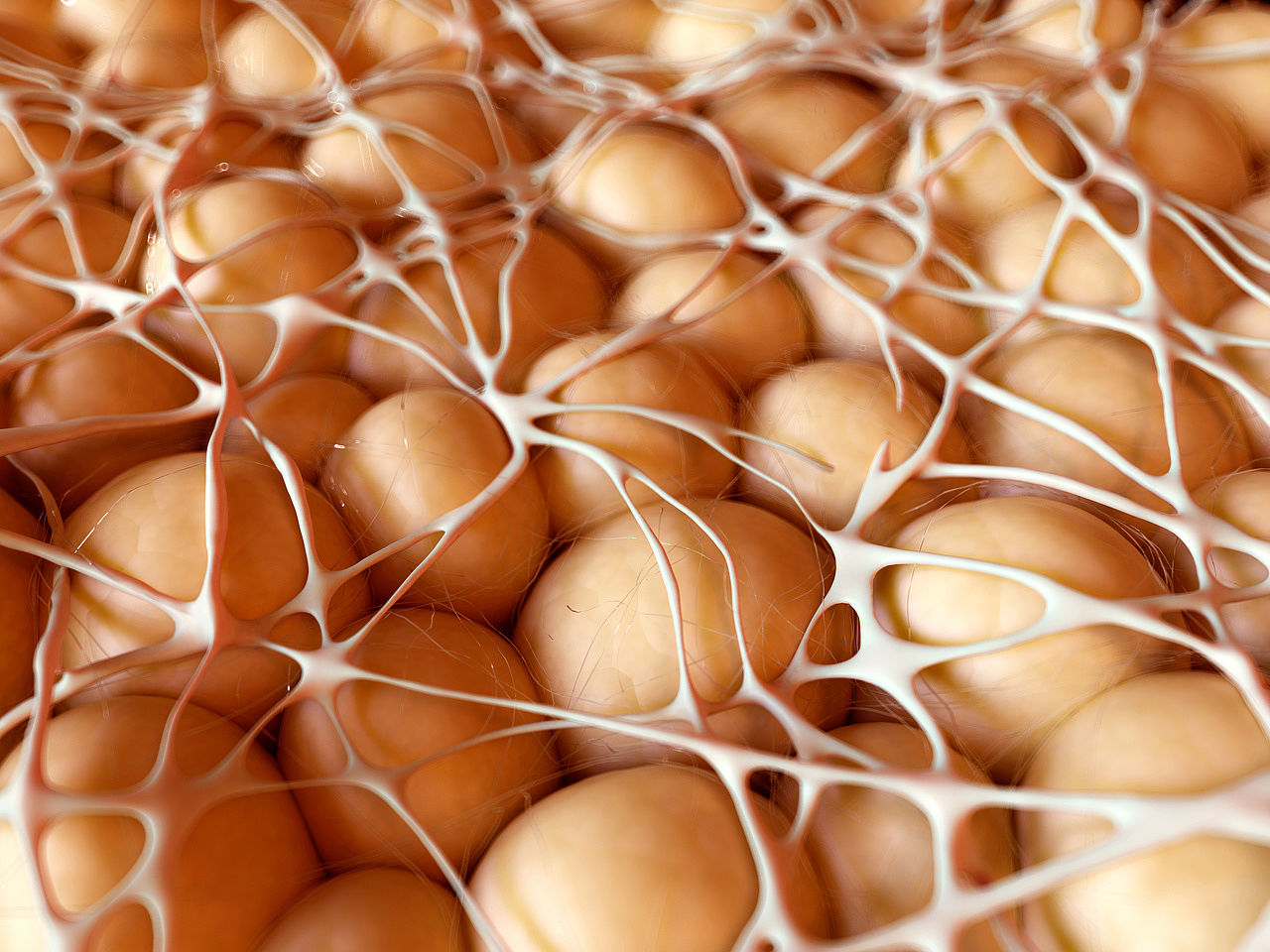The inhibitor is a substance called atglistatin. It inhibits a protein molecule that breaks down fat, known as adipose triglyceride lipase (ATGL). In a mouse model for heart failure, the Berlin researchers were able to show the significant cardioprotective effects of atglistatin. If the mice were given atglistatin, inflammation in the heart was decreased. In addition, there was less fibrosis - the pathological accumulation of connective tissue - and fewer cardiac cell loss. "This is the first treatment approach that does not act throughout the body, but is only primarily active in the adipose tissue and still has an effect on the heart," says DZHK scientist Dr. Anna Foryst-Ludwig from Charité.
Targeted blockade
When the heart doesn’t pump blood properly, the body releases cardioactive substances that stimulate it to perform better again. But they additionally activate the adipose tissue inducing the break down of fats. In the heart failure model of the Berlin researchers, the mice were given these stimulating substances for four days and thus developed early signs of heart failure. The administration of the inhibitor atglistatin blocked the breakdown of fat in the adipose tissue, but not in the heart or other organs where lipase is also active. This aspect is important because in other organs, inhibited lipase would lead to harmful fat accumulation.
Despite the inhibited adipose tissue lipolysis, the mice did not gain weight and were healthy. However, according to the researchers, a drug tested in clinical trials for effectiveness and side effects is still a long way off.
Prevention or treatment?
The inhibitor had the most significant cardioprotective effect on mice before heart failure was fully developed. Co-author Professor Ulrich Kintscher points out that these results come from an animal model in which heart failure developed very quickly, whereas, in humans, it is a chronic process that takes years. So even in existing heart failure, atglistatin could be potentially used to reduce the development of heart failure. "For one form of heart failure, heart failure with preserved ejection fraction (HFpEF), there are currently no drug therapies. The inhibitor atglistatin could now open up a new therapeutic approach for this disease as well," says Kintscher.
The substance atglistatin used by the Berlin researchers only works in mice. Scientists at the University of Graz are currently working on an inhibitor that is effective in humans. This research is still in the preclinical phase; initial tests on cells in the laboratory are already taking place.
Original publication: Pharmacological inhibition of adipose tissue adipose triglyceride lipase (ATGL) by atglistatin prevents catecholamine-induced myocardial damage. Thiele A, Luettges K, Ritter D, Beyhoff N, Smeir E, Grune J, Steinhoff JS, Schupp M, Klopfleisch R, Rothe M, Wilck N, Bartolomaeus H, Migglautsch AK, Breinbauer R, Kershaw EE, Grabner GF, Zechner R, Kintscher U, Foryst-Ludwig A. Cardiovasc Res. 2021 Jun 1:cvab182.
DOI: 10.1093/cvr/cvab182.
Contact: Christine Vollgraf, Press and Public Relations, German Centre for Cardiovascular Research (DZHK), Tel: 030 3465 529 02, presse(at)dzhk.de
Scientific contact:
Associate Professor Dr. Anna Foryst-Ludwig, Institute of Pharmacology, Charité – Universitätsmedizin Berlin, anna.foryst(at)charite.de
Professor Dr. Ulrich Kintscher, Director of the Institute of Pharmacology, Charité –
Universitätsmedizin Berlin, ulrich.kintscher(at)charite.de




